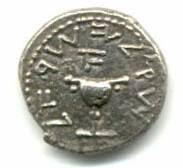I've blogged before of the dangers of going in to a police interview without an attorney present even when you know you've done nothing wrong. Indeed you may be sure down deep in your soul that you've done nothing wrong so why not go in and be helpful, you don't need an attorney, right?
Well one of my clients, before they became a client, did so as they clearly believe they did nothing wrong in a dispute with another person over something. Any guesses where this is going?
Without going into any details of the case, which for the purposes of this post don't matter, here's the lesson to be learned:
This person was invited in to give their side of a story in an incident.
When you're invited in to give your side of a story that's a warning - you're not being considered a victim, you're being considered a suspect.
Of course, this person agrees and goes in voluntarily, without an attorney, because why would this person possibly need one, they didn't do anything wrong, right?
Person goes in and meets a detective, in a small room that is delightfully well-equipped with a video camera with excellent image and audio pickup qualities.
Now detectives, as you realize, have some level of training and skills at interrogation. Indeed you may call them professionals at interrogation. After all, it's what they do.
Now our dear person is clearly an amateur at being on the receiving end of an interrogation. Are they ever.
The detective however, is a professional and a darn good one.
No good cop / bad cop games, no pounding the table or any other such silliness you might see on TV that would shut a person down and stop them from talking. No rubber hoses come out. Instead, there's just a nice gentle friendly opener with "My name is detective so-an-so, thanks for agreeing to come in and talk. I'm just here to get the truth and I promise to play it straight with you, I'm not hiding anything or lying to you and I hope you'll do the same with me." A rather masterful opening, complete with friendly and open body language. Followed by masterful gentle follow-up questions that elicit more and more statements that dig our person in deeper without our person even realizing what's going on or where this is going.
Our person in question doesn't have a chance, and it's cringe-worthy to watch in full color.
The helpfully and happily make lots of incriminating statements. Many statements are made, some of which are clearly due to the person not quite getting the drift of the conversation and not knowing how to effectively convey their side of the incident. Many of these statements, had the person had time to talk with an attorney and think about them and they certainly would have been answered differently to actually match the actual story the person presents and the events that allegedly occurred. Questions likely also would have been challenged for containing assertions without any evidence to back them up. Our person however flies right through and answers the loaded questions with a happy and unloaded mind and mouth.
Person finally retains an attorney, me, and all there is left to do is damage control.
As much as the person will now state they meant to say this rather than that, they darn well said that and did not say this, on video. Voluntary statements are fully admissible and it's rather well-nigh impossible to walk them back after making them.
Unfortunately, even if you're a good guy, you can talk yourself into a felony too darn easily, most especially when you think you've done nothing wrong in a dispute with another person.
Since you're a good guy, do what a smart good guy would do when you're invited in by the police to give your side of a story in a dispute:
Tell the police you'd be happy to cooperate just as soon as you've had a chance to talk with your lawyer to find out their schedule and then you can arrange for a mutually convenient time where you can give your statement with your attorney present. Then meet with your attorney first, and only after that arrange for the interview.
I'd much rather have the police focused on catching the bad guys rather than catching good guys who have managed after an incident to mishandle an interview and talk themselves into appearing to be the bad guy.

6 comments:
I don't do criminal law, but I touch on it in domestic relations and juvie. I share this video every chance I get.
Good video. I find that while they have the right to remain silent, people tend to lack the ability.
This is a little bit off-topic, but how does a potential juror handle the question(s), "Do you have guns?" or "How many guns do you have?"
Further, do potential juror's answers become a matter of record?
This might even warrant a separate blog post. Your call.
Curious minds want to know.
There is no subsitute for brains, but silence is a pretty close second.
That is a great video.
Joe Mama:
Off the cuff, as a juror you are required and expected to answer voir dire questions accurately and truthfully.
Lying is ill-advised and can lead to severe legal consequences if found out, not to mention it can cause the case to result in a mistrial or an overturn on appeal.
I'll have to blog someday about the Dudley Do-Right juror that caused a mistrial after I had won a case, causing a complete do-over that I still won, but it did not enamor me, the client, nor the court towards that idiot juror.
If your last sentence was true we'd be out of business. +1 on the video.
Post a Comment